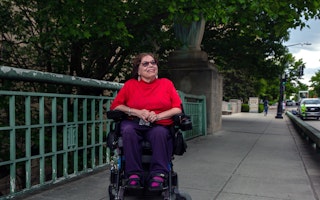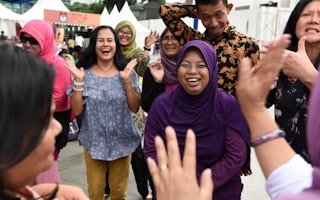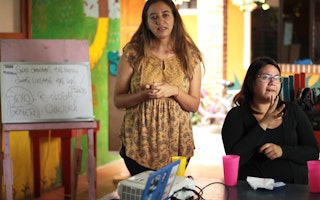Q&A: In Kyrgyzstan, a Small Investment Can Make a Big Difference

The Open Society Foundations, through its Youth Action Fund, has provided small grants directly to more than 50 young people in Kyrgyzstan to help inspire the next generation of human rights activists. Open Society Human Rights Initiative Program Officer Kimberly O’Haver spoke to the Fund’s coordinator, Lira Momunalieva, about how young people in Kyrgyzstan have used individual grants to raise the profile of human rights issues in the country.
What is it like to be a young person who cares about human rights in Kyrgyzstan?
In Kyrgyzstan, human rights are often portrayed by the media and the government as a threat to Kyrgyz culture. The state-run media says that NGOs engaged in human rights work, especially those receiving funds from organizations outside the country, have an outside agenda that is threatening to Kyrgyzstan.
Nevertheless, though, we see determined young people who have identified problems in their communities and who want to take action to try to improve the lives of their friends, families, and neighbors. It is very inspiring to see young people find ways to bring a positive message of hope in what can be a difficult atmosphere.
How does the Youth Action Fund try to support these young people?
It provides small grants directly to Kyrgyzstan’s young people—those between the ages of 16 and 28—who have ideas for projects that they think will improve the public’s understanding of human rights movements in Kyrgyzstan. For example, our grantees have told human rights stories using hip-hop, street art, dance, street theater, hackathons, and new twists on traditional music.
Do these relatively small grants have much of an impact?
Yes. A project that had an enormous impact for a comparatively small investment in funds, for example, was implemented by a grantee in Aravan (a remote region of Kyrgyzstan near the country’s border with Uzbekistan). Our grantee developed a play about the fate of young girls in communities where girls are forced into marriages. The play focused on the fact that women and girls in these relationships have, essentially, no rights. After the play was performed, the young woman who put the play on led a discussion with local imams, and government officials.
It was potentially life changing for young women in those communities to see the play, and the discussion afterward was productive. It was especially important to hear a local imam say that one should follow the law—and that taking multiple wives is against the law. (Often, these very young brides are a man’s second, third, or fourth wife.)
What other issues do your grantees focus on?
The rights of people with disabilities. We had a grantee who was a sign language interpreter and whose project involved working with teenagers at a school for deaf children in Osh, in southern Kyrgyzstan. The grantee used sign language to teach students about their rights as outlined in the UN Convention on the Rights of Persons with Disabilities (with a special focus on Article 24, which concerns the right to employment).
At one point, the grantee discovered that the kids at the school did not know how to sign “human rights.” The phrase had simply never come up. It was eye-opening for them, to understand that there was a concept of human rights—and that it applied to their lives.


